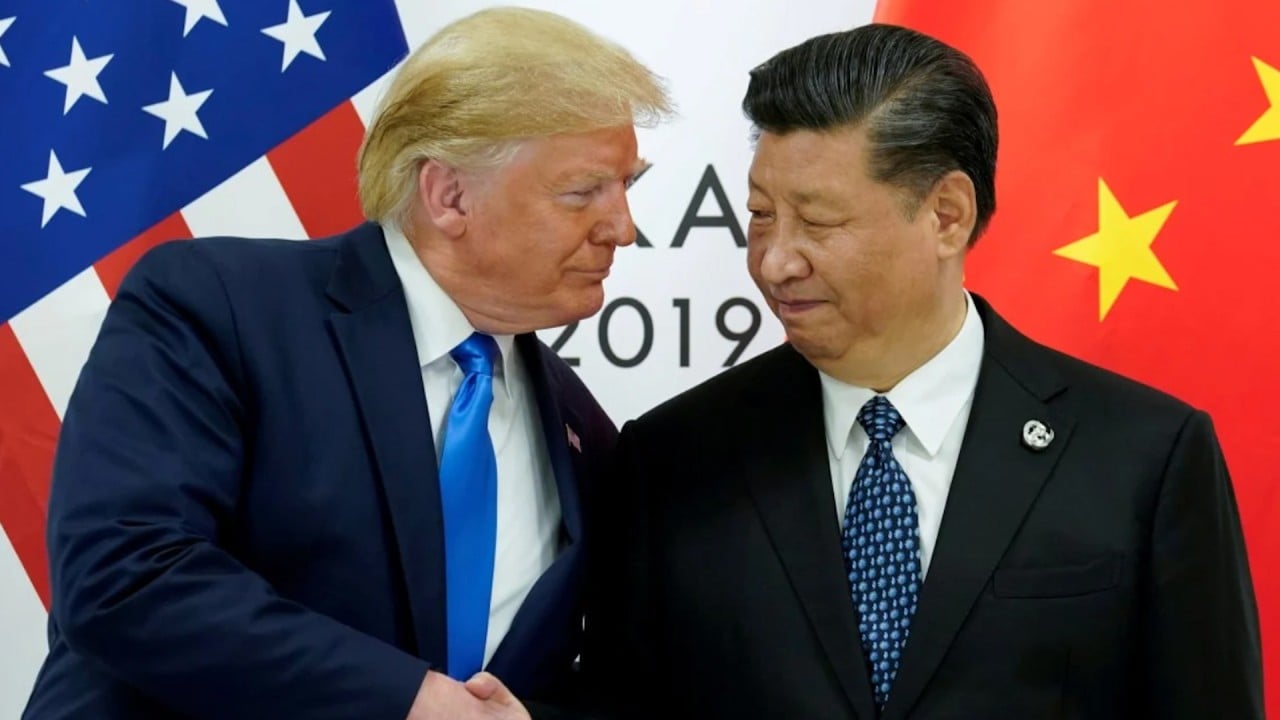The first US presidency of Donald Trump coincided with a rapid growth in China’s ability to transfer its emerging technologies between military and civilian use, according to a study by Chinese researchers.
The project team led by Tian Qingfeng of the school of management at Northwestern Polytechnical University (NWPU) draws a line between US sanctions on China and the strengthening military-civilian relationship.
For instance, the capability of “civil-military technology transfer” in the northwestern province of Shaanxi nearly doubled in just a year from 2020, the team wrote in a paper published this month.

03:19
Global reaction to Trump's win in the US presidential election
Global reaction to Trump's win in the US presidential election
In the southern province of Guangdong, this capability approached its theoretical limit in 2021, meaning that more than 90 per cent of civilian new technologies could be converted for military use, and vice versa.
These levels of capability were previously deemed impossible. Before 2016, the ratio in China had long hovered below 20 per cent, with the military generally distrusting civilian manufacturers, and the latter worried that developing military technologies would reduce their appeal to foreign investors and consumers.
Trump inadvertently broke down this invisible barrier that had troubled Beijing for decades, according to the study.
Through administrative means, Trump’s government caused Chinese tech giant ZTE to lose almost all its chip supplies overnight; and through diplomatic means, they detained Meng Wanzhou, the daughter of Huawei’s founder Ren Zhengfei, in Canada.
Subsequently, a large number of Chinese companies were added to the sanctions list, and thousands of scientists at US universities with cooperative relationships with China were investigated by the federal government.

 By South China Morning Post | Created at 2024-11-20 06:01:20 | Updated at 2024-11-23 23:13:01
3 days ago
By South China Morning Post | Created at 2024-11-20 06:01:20 | Updated at 2024-11-23 23:13:01
3 days ago








